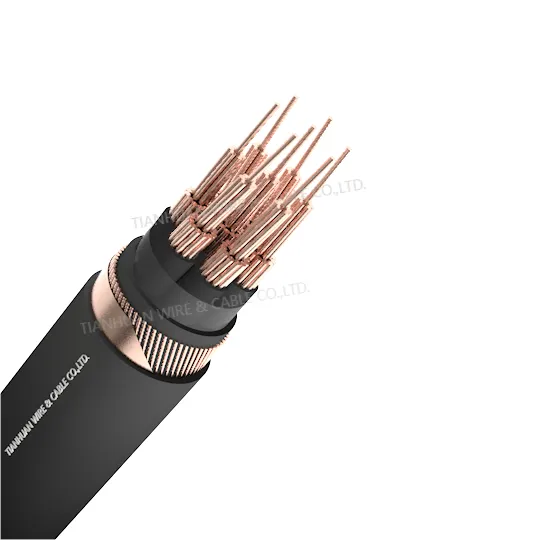
best high voltage leads to
Best High Voltage Leads To Enhanced Performance
High voltage leads are essential components in various electrical systems, playing a crucial role in ensuring reliable operation and efficiency. These leads are designed to handle high voltages while minimizing energy losses, maintaining safety standards, and providing durability over time. In this article, we will explore the best practices for selecting high voltage leads, their applications, and the significant benefits they bring to electrical systems.
Understanding High Voltage Leads
High voltage leads are electrical conductors designed to carry voltage levels that exceed standard ratings, often exceeding 1 kV. They are used in a variety of applications, from power transmission lines to industrial equipment and renewable energy systems. The primary function of these leads is to provide a safe and efficient path for electricity to travel while mitigating risks associated with high voltage, such as arcing, insulation failure, and electrical fires.
Key Features of High Voltage Leads
When selecting high voltage leads, several critical features should be considered to ensure optimal performance
1. Insulation The insulation material must withstand high voltage levels while providing excellent dielectric strength. Common materials include silicone rubber, polyethylene, and PVC, each offering different degrees of protection against environmental factors such as moisture, UV radiation, and chemical exposure.
2. Conductor Material High voltage leads typically utilize copper or aluminum conductors due to their excellent conductivity. However, the choice between them depends on application requirements, with copper offering higher conductivity and aluminum being lighter and more cost-effective.
3. Mechanical Strength High voltage leads must endure mechanical stress during installation and operation. Leads should have adequate tensile strength to resist stretching and breaking, especially in mobile or dynamic applications.
4. Flexibility Depending on the application, leads may need to remain flexible while maintaining high performance. Flexible leads are important in applications where movement or bending occurs regularly.
5. Temperature Rating High voltage leads must operate efficiently within a specified temperature range. Selecting leads with appropriate heat resistance ensures longevity and reliability in high-temperature environments.
Applications of High Voltage Leads
best high voltage leads to

High voltage leads find diverse applications across various industries
- Power Generation and Distribution In power plants, high voltage leads facilitate the transmission of electricity from generators to transformers, minimizing losses and enhancing efficiency.
- Renewable Energy Systems In solar power and wind energy installations, high voltage leads connect solar panels and wind turbines to inverters and the grid, ensuring effective energy conversion and distribution.
- Industrial Machinery Heavy machinery and equipment often require high voltage leads to operate motors, pumps, and other electrical components reliably. These leads ensure that power is transmitted efficiently under demanding conditions.
- Telecommunications High voltage leads are used in telecommunications infrastructure to power critical equipment, ensuring uninterrupted service across networks.
Benefits of Using High Voltage Leads
1. Enhanced Efficiency High voltage leads reduce energy losses during transmission, contributing to overall system efficiency. The ability to transmit power at higher voltages enables smaller conductors, which can also lead to reduced installation costs.
2. Improved Safety With enhanced insulation and design specifications, high voltage leads minimize the risk of electrical hazards, protecting both personnel and equipment.
3. Longevity High-quality leads are built to withstand the rigors of high voltage demands, which translates to reduced maintenance costs and longer service life.
4. Versatility High voltage leads are adaptable to various applications, making them suitable for a wide range of industries, from aerospace to automotive and beyond.
Conclusion
Selecting the best high voltage leads is paramount for enhancing performance and safety in electrical systems. By understanding their key features, applications, and benefits, users can make informed decisions that lead to long-term operational success. In an era where reliability and efficiency are crucial, investing in quality high voltage leads is not just a choice; it is a necessity for any serious electrical project. Whether for powering a renewable energy system or ensuring the integrity of industrial machinery, high voltage leads are indispensable in maintaining the flow of modern electricity.
-
Reliable LIYCY Cable Solutions for Low and Medium Voltage ApplicationsNewsJul.14,2025
-
Premium Overhead Electrical Wire Solutions for Low and Medium Voltage ApplicationsNewsJul.14,2025
-
Innovative XLPE Electrical Cable Solutions for Modern Low and Medium Voltage NetworksNewsJul.14,2025
-
High-Quality Ethylene Propylene Rubber Cable – Durable EPDM Cable & 1.5 mm 3 Core OptionsNewsJul.14,2025
-
Exploring the Versatility of H1Z2Z2-K 1X4mm2 Cables in Modern ApplicationsNewsJul.14,2025
-
Uses of Construction WiresNewsJul.14,2025
-
Types of Neoprene CableNewsJul.14,2025














